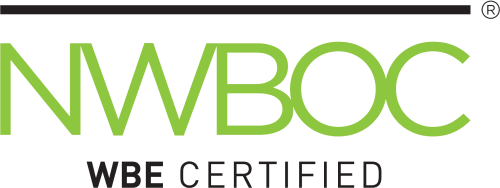Arlington, Va., March 20, 2017 – Federal agencies now easily can tap Eagle Hill Consulting’s services via the Government Services Agency’s (GSA) Schedule 738X for Human Resources support services. The contract award comes at a time when most agencies confront dramatic workforce challenges and a new executive order calling on agencies to submit reorganization plans within 180 days. Simultaneously, some federal agencies are ramping up for increased staffing, while others must do more with less in the face of the federal hiring freeze while bracing for unprecedented budget cuts.
The GSA award signifies the company’s leadership and growing prominence in the federal agency organizational design and human capital management arena. Eagle Hill recently was awarded a Human Capital and Training Solutions (HCaTS) contract worth up to $11.5 billion to provide industry leading human capital solutions to federal agencies.
Under the Schedule 738X, agencies now can tap Eagle Hill for Human Capital Strategy, Policy and Operational Planning professional services including:
- Organizational Development
- Workforce Planning
- Human Capital Strategy
- Organizational Design and Position Classification
- Diversity and Inclusion
- Employee Engagement and Communications
“Perhaps the top challenge for nearly all agencies this year will be in the human capital arena – from workforce planning to employee engagement. Federal agencies already struggle to recruit and retain qualified employees and to strategically re-structure their workforce to meet their mission,” says Melissa Jezior, Eagle Hill president and chief executive officer.
The Washington Post reports that USAJobs — the largest federal job board — posted more open positions at the end of 2016 than during the same period for the previous year. According to the Office of Personnel Management, that represents an increase of more than 16 percent as compared to 2015.
“Now, the human capital hurdles will be even greater across all agencies. For agencies that expect their budgets to surge, it’s no easy task to swiftly re-design workforce plans, fill open positions and effectively train employees. And for agencies dealt a double whammy of the hiring freeze and budget slashes, the challenges range from doing more with less to keeping the strong performers from walking out the door,” Jezior says.
“The good news is that there are ways that agencies can prepare now to ramp up their hiring or do more with less people and dollars.” Jezior said. “But figuring out the right strategy isn’t always easy. We’ve worked with numerous public and private sector organizations to help solve these very problems.”
At one large federal transportation agency, Eagle Hill worked hand-in-hand to create the agency’s first ever 5-Year Workforce Strategic Plan. And at another agency, Eagle Hill experts helped that agency build a next generation workforce while fostering a positive and engaging work environment.
Jezior says three things agency leaders can do now to prepare for forthcoming workforce changes are to:
- Foster a dialogue. Everyone likely is whispering “around the watercooler” about the upcoming changes, which can be a breeding ground for misinformation and anxiety. Instead, engage employees in productive conversations in meetings or one-on-one about what they see as the issues, solicit their views, provide them with accurate information as it becomes available, and respond to their questions and concerns.
- Recognize employees. Anxieties likely are high, and that’s a time when small gestures can mean the most. Recognition programs can improve morale during tough times and help retain your star performers. Agencies can do this even in lean times – from setting up peer-to-peer recognition efforts to creating a culture that provides immediate and direct feedback from managers for a job well done, to non-monetary performance award programs.
- Shift to a risk and requirements mindset. When budgets are reduced, agencies often think in terms of headcount reductions. Instead, agencies are better positioned to articulate their risks to mission. For example, rather than talking about backfilling vacancies, reframe conversations about the job required job functions that are needed to fulfill the mission and what will “fall off” amid budget cuts. These conversations are far more productive in terms workforce planning as it bridges human resources requirement to risk to operations.
To learn more about how an agency can engage Eagle Hill under the GSA Schedule 738X and other contracting vehicles is available here. Agencies also can access Eagle Hill’s services via the HCaTS Small Business contract, the new joint Office of Personnel Management and Government Services Agency contracts. More information on HCaTS is available here.
Eagle Hill Consulting LLC is a woman-owned business that provides management consulting services in the areas of business strategy, organizational transformation, human capital transformation, process improvement, program management and change management. Eagle Hill works with a range of public, private, and non-profit organizations in the Washington, D.C. metropolitan area and across the nation. Forbes named the company one of America’s Best Management Consulting Firms of 2016. And, the company was named a 2016 Best Place to Work in Greater Washington by The Washington Business Journal, and earned top workplace awards from The Washington Post and Washingtonian along with multiple top rankings in the Vault 50 Consulting Ranking. More information is available at www.eaglehillconsulting.com.

